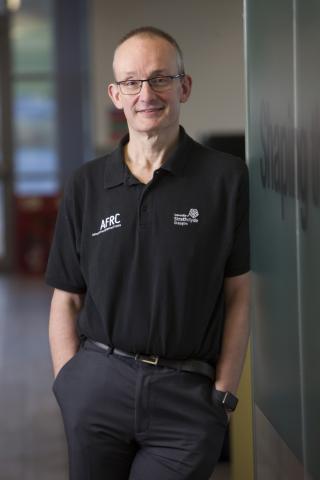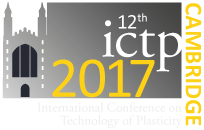 As CTO of the Advanced Forming Research Centre, Michael is the technical lead for the High Value Manufacturing Catapult centre which is the focal point for high value manufacturing in Scotland and for translation research on forming and forging technologies for UK. He has responsibilities for strategy, technical excellence and capability of the technical team. Michael previously worked in Rolls-Royce in a number of positions. As corporate Chief of Capability Acquisition, he was responsible for the definition and leadership of Capability Acquisition across aerospace, marine, energy, and nuclear sectors. As a programme manager on the Trent 1000 he developed a new approach to manufacturing technology insertion and validation for Boeing 787 Dreamliner engine programme. He has significant experience in manufacturing process modelling, having led the Rolls-Royce Process Modelling Group a number of years. In his early career Michael worked with ABB Daimler Benz Transportation and in the petrochemical processing industry.
As CTO of the Advanced Forming Research Centre, Michael is the technical lead for the High Value Manufacturing Catapult centre which is the focal point for high value manufacturing in Scotland and for translation research on forming and forging technologies for UK. He has responsibilities for strategy, technical excellence and capability of the technical team. Michael previously worked in Rolls-Royce in a number of positions. As corporate Chief of Capability Acquisition, he was responsible for the definition and leadership of Capability Acquisition across aerospace, marine, energy, and nuclear sectors. As a programme manager on the Trent 1000 he developed a new approach to manufacturing technology insertion and validation for Boeing 787 Dreamliner engine programme. He has significant experience in manufacturing process modelling, having led the Rolls-Royce Process Modelling Group a number of years. In his early career Michael worked with ABB Daimler Benz Transportation and in the petrochemical processing industry.
Abstract: Reshaping metalforming for the future: challenges, possibilities, potential
The pace of change in manufacturing process technology in the early twenty first century is unprecedented. This, coupled with the rapidly evolving geopolitical landscape and increased strategic recognition of security of supply, has led to a resurgence of interest in the topic of high value manufacturing in the UK. As with other areas of technological growth the pace of change is enabled by advances in digital connectivity, communications, analysis, and interoperability. In principle techniques such as additive manufacture and multi-axis machining, when coupled with digital design capabilities, can enable a design and make process which might have previously taken weeks or months to first physical prototype being reduced to hours. Perhaps more significant is the ability to link this manufacturing capability to automated topological optimisation of design, which creates the possibility of designing components and products whose shape is idealised for purpose rather than based on a compromise between functionality and manufacturability. When the additional dimension of alternative material systems (primarily composites) is also considered, it is easy for those on the periphery of manufacturing technology to form a view that alternative techniques will ultimately (and maybe quite soon) eliminate the need for conventional processing methods. While this is a viewpoint which fails to recognise some key issues of product integrity and cost, for the UK, this position runs the risk of becoming entrenched at a point in time when the basis of strategic decisions about the manufacturing future are being established. Taking the UK as a particular case-in-point, this presentation will articulate the basic elements of the digital future for metalforming in the context of other process technology and materials systems. It will describe the potential available via the combined industrial and research community in working together to ensure that technologically led potential for growth and development is fulfilled.
